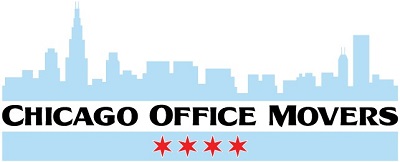
Best Practices for Managing Office Inventory and Supplies
Best Practices for Managing Office Inventory and Supplies
Written by Chicago Office Movers on . Posted in Storage Services

Offices run smoothly when they are equipped with the necessary supplies and maintain their inventory. Running out of much-needed supplies at an inopportune moment can lead to disaster. Here are best practices to ensure the office remains well-stocked with supplies and inventory is well-managed.
Supplies most utilized in the office span a wide range, from desk supplies and writing supplies to technology supplies and kitchen supplies (a break room will be less popular without an adequate store of can openers, paper towels, plastic plates and cups, and tinfoil!).
Most offices rely on supplies, like rubber bands, paperclips, dry erase boards, printer paper, mailing labels, legal envelopes, binders, hole punchers, and file folders. Printer toner and ink are necessary to operate the printer. Surge protectors and extension cords keep the electronics running safely.
Staff often utilize time tracking supplies, such as day planner refills, calendars, and to-do lists. When sending off packages to customers or business partners, padded envelopes or bubble mailers come in handy. Employee birthdays wouldn’t be the same without a stock of birthday candles.
Considering this partial list of office supplies, it’s easy to see the necessity of managing them regularly. If the printer runs out of paper when an important document must be mailed, panic in the office can ensue. Avoid this and similar hassles by following these best practices for supply management.
1. Track Inventory
Successfully managing inventory starts with an efficient tracking method. Numerous options are available to businesses large and small. Keeping track of inventory via paper and pen is convenient for small companies, for instance; manual record-keeping of maintenance records also works well.
Mid-size businesses may utilize a spreadsheet to enter the dates of equipment repairs and warranties. Companies may alternately opt for a more robust method of tracking—an inventory management system. This software may include integration capabilities that decrease overhead expenses.
Inventory management software is especially useful when offices buy and store a large quantity of supplies. The software can be set up so that it sends out alerts as soon as supplies run low. An office supply manager is the ideal person to manage the software.
2. Assign a Supplies Manager
Who goes about tracking the inventory? As mentioned, a company will appoint a supplies manager to the task. Assigning one person to organize, monitor, and track inventory helps streamline the process. This individual is also the go-to team member for supply related questions.
The supplies manager acts as the gatekeeper, controlling the flow of outgoing supplies. Employees may accidentally take more than what is needed, leading to overordering and overspending on supplies. If one supplies manager isn’t practical, give the task to a select group of employees.
3. Organize Supplies
A neat and tidy supply room helps simplify inventory maintenance. Office staff should be able to easily find paperclips and thumbtacks, and this can be achieved by grouping similar supplies on the same shelf. Store frequently used items at eye-level, and place less popular ones higher up.
4. Maximize Existing Supplies
Office supplies deteriorate over time, making them unusable. Printer ink dries out after a few months and highlighters can lose their vibrancy. Encourage the office staff to use their existing supplies before opening new ones. Both office waste and its carbon footprint are thereby reduced.

5. Order in Bulk
Supply companies often offer discounts for bulk orders. Taking advantage of the price perks for larger orders involves keeping track of heavily used supplies and calculating the amount of time for the shipment to arrive. This strategy requires extra effort but pays off in the long run.
6. Create a Master List
One product’s brand may be preferred over another. When offices are loyal to a specific brand of toner, for instance, it’s helpful to keep track of it for re-ordering purposes. Create a master list containing not only the brand, but the name, color, number, and any other product details.
7. Perform Routine Supply Checks
Some offices may go through supplies quickly. Stay up to date on the amount of inventory available by running weekly, bi-weekly, or monthly supply checks. This step simply involves counting the toner, bags of pens, or boxes of paper and updating the spreadsheet with the current quantities.
8. Establish a Day to Reorder
Reordering supplies is simplified when it’s scheduled for a specific day. The appointed day should be one when supplies normally run low. This best practice prevents the confusion associated with placing multiple orders on random days. It’s a plus when all the supplies are delivered together.
Managing office inventory and supplies is a critical step to ensuring a business runs without interruptions. Workflow is also seamless when you partner with a commercial mover, like Chicago Offices Movers. We will get your company from point A to point B with the least disruptions.
As the city’s premier commercial moving company, Chicago Office Movers is the go-to resource for corporate relocations in the surrounding area. Our dedicated crews are available to transport your office goods locally, long-distance or international, while staying within budget and the estimated timeframe.
Our licensed, background-checked office movers are experts in packing, moving, and unpacking a wide range of bulky and fragile goods, such as office furniture, antiques, IT systems and servers, cubicles, and electronics. We handle your possessions with care and use protective equipment during loading, transport, and unloading.
Chicago Office Movers also offers convenient services to ensure your corporate move is stress-free. Short- and long-term storage options, insurance and service contracts, and help with planning the relocation are just a few of the many services we provide to our valued customers.
Corporate moves can be stressful and disrupt workflow. Working with Chicago Office Movers, however, minimizes disruptions and ensures that your company resumes operations quickly after a move.
Call our Chicagoland office at 312-244-2246 (CHI-CAGO) for a free estimate or to learn how your business will benefit from our highly rated corporate relocation services.
Contact Us
Related Services
- Corporate Moving
- Commercial Moving
- Reliable Commercial Storage
- Specialty Commercial Moving
- Furniture Assembly
- Movers for Office Renovation
- Machinery Moving
- Library Moving
- Lab Moving
- Server Room Moving
- Office Movers in Rosemont, IL
- Commercial Moving in Bolingbrook, IL
- Commercial Movers in Naperville, IL
- Commercial Movers in Des Plaines, IL
- Commercial Moving Services in Aurora, IL
- Schaumburg Office Movers
- Commercial Moving Services in Oakbrook, IL
- Commercial Movers in The North Shore
- Elk Grove Village Commercial Movers
- Furniture, Fixtures and Equipment Services
- Moving Company in Lincolnshire, IL
- Professional Movers in Downers Grove, IL
- Moving Company in Chicago, IL







